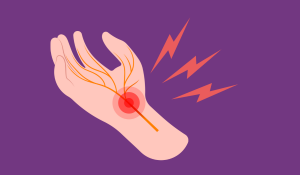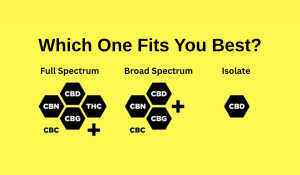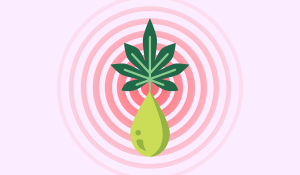Can CBD Help with Lupus? What You Should Know
Lupus is a chronic autoimmune disease with effects that vary widely between individuals. Treatment often involves a range of medications — from NSAIDs to immunosuppressants. Given the growing evidence of CBD’s anti-inflammatory and immunosuppressive properties, some researchers are exploring its potential to support symptom relief in people with lupus.
Lupus is a long-term autoimmune condition that can impact multiple organs, including the skin, heart, lungs, and kidneys. The most common type is systemic lupus erythematosus (SLE).
Autoimmune diseases occur when the immune system mistakenly attacks healthy tissue. While the exact causes remain unclear, they often run in families and are more common in women. Understanding lupus and how it manifests is key to managing it effectively.
Symptoms can differ from person to person, but some of the most frequently reported include:
Persistent fatigue
Joint pain
Butterfly-shaped facial rash
Recurring fevers
Because these symptoms overlap with other conditions, it’s important to get a medical diagnosis to confirm lupus.
Lupus treatment is personalized and may include:
NSAIDs for pain and fever
Corticosteroids to reduce inflammation
Hydroxychloroquine and similar medications to manage immune activity
Immunosuppressants to prevent immune overreactions
CBD (cannabidiol) is being studied for its immunomodulatory and anti-inflammatory properties. These effects suggest it could potentially:
Help regulate abnormal immune responses
Reduce inflammation-related pain
This points to possible applications of CBD in managing autoimmune conditions like lupus. However, current research is still limited. There is a lack of large-scale, standardized clinical trials specifically examining CBD as a treatment for lupus.
That means we still don’t have clear answers on:
The most effective dosage of CBD for lupus
The best form of administration (e.g., oils, topicals, capsules)
Long-term safety and effectiveness
If you’re considering CBD as part of your lupus management plan, it’s essential to consult with a medical professional first. They can help you weigh the potential benefits and risks based on your individual case — and determine if CBD could complement your existing treatment regimen.

Explore this cbd consumption methods tutorial and follow the step-by-step process to select, use, and verify the safest ways to consume CBD for wellness.
Read More
Learn what CBD edibles are, their main types, expected effects, legal status, safety factors, and how they compare to other forms of CBD.
Read More
Therapeutic Uses of CBD Managing Chronic Pain with CBD Struggling with chronic pain? CBD might help. Studies suggest it can reduce inflammation and alleviate discomfort,...
Read More
Just as CBD may help humans due to its interaction with the body’s endocannabinoid system, the same is true of dogs. CBD has the potential...
Read More
Cannabis has been used for millennia to treat numerous health conditions. Current research offers promising results on the effects of CBD oil on breast cancer.
Read More
What Is CBD for Cats? CBD (Cannabidiol) is a natural compound from hemp. It’s non-psychoactive, meaning your cat won’t get “high.” Instead, it works with...
Read More
1. Understanding Neuropathic Pain Neuropathic pain results from nerve damage or dysfunction, causing symptoms like burning, tingling, or sharp shooting pains. Common Causes: Symptoms Include:...
Read More
CBD for Pets: A Pet Parent’s Guide to Dosage We all want the best for our pets, especially when they’re struggling with pain, anxiety, or...
Read More
1. Full-Spectrum CBD: The All-In-One Option What it is: Contains CBD, minor cannabinoids, terpenes, flavonoids — and less than 0.3% THC. Why choose it: Promotes...
Read More
Why Use CBD for Pain? Chronic pain affects millions and often limits everyday activities. CBD, a non-intoxicating compound from hemp, is emerging as a natural...
Read More